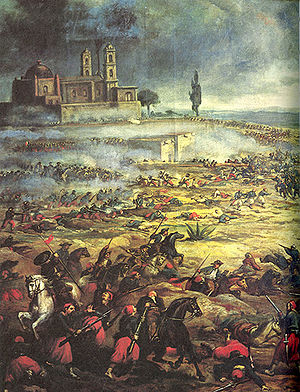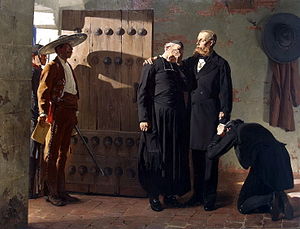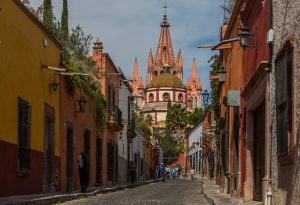In 2010, I wrote a post about Cinco de Mayo which caused some controversy in our office as the post, admittedly, downplays the significance of the battle (and Mexican victory) that took place in Puebla on May 5th, 1862.
At the time I was writing that post, most of the research I did showed that the holiday of Cinco de Mayo was largely accepted as an excuse for Americans to sell more beer. This year, however, I read some interesting articles that have led me to conclude that Mexico’s victory at the Battle of Puebla (in which a 4000 troop Mexican army was able to fend off a French army of 8000 men of, arguably, the most well trained army in the world at the time) was much more significant that most people realize, especially for Americans.
Fist, let me acknowledge that, yes, the Mexican forces in Puebla fought valiantly and skillful to mow down a much larger opponent. The victory was inspiring and helped unite the Mexican people in their cause. But, yes, it is also true that the French ultimately regrouped, overtook Puebla, marched on to overtake Mexico City, and installed Maximilian I as emperor who reigned over Mexico for three years. What is not often mentioned, however, is that it took almost two years for the French to regroup and conquer. The events of those 23 months, or more importantly the events that did not happen during those 23 months, are what make the Mexican victory on Cinco de Mayo so important.
To fully understand the significance of the victory, we must broaden our scope a bit and understand that at the time of The Battle of Puebla, the United States was tearing itself apart in the American Civil War. It is widely believed that the French were very interested in breaking up the American Union and intended to use the territory of central/northern Mexico, pending a victory in Puebla, to aid the Southern Confederacy with supplies and ammunition in their fight for independence from the Northern Union.
The Battle of Gettysburg, often considered the turning point of The American Civil War, was fought July 1-3, 1863, just 14 months after the Mexicans of Puebla beat back the French. Had the French won at Puebla, they would have been able to supply the Southern Confederacy with supplies and possibly men in the months leading up to the Battle of Gettysburg, possibly providing the Confederacy with enough support to have forced a much different outcome in both Gettysburg and the American Civil War in general.
Instead, the French were forced to focus all of their energy into regrouping and fighting their way to Mexico City while the battle weary Confederacy was defeated in Gettysburg and eventually defeated outright. While France was eventually able to insert Maximilian I as emperor, they missed their window to aid in the weakening of the American Union as the Northern Union defeated the South, paving the way for The United States of America to become a top world power.
When the American Civil War ended, the United States began supplying the Mexicans with weapons and ammunition, aiding them in their fight to rid Mexico of the new foreign regime. Two years later, Mexicans overthrew and, despite pleas from royalty across Europe, executed Maximilian I, liberating themselves from foreign rule and sending a clear message that Mexico would never again tolerate any government imposed by foreign powers. No European power has ever invaded Mexico nor The United States since.
So when Cinco de Mayo roles around again next year, celebrate twice as hard knowing that the events of that day 150 years ago in Puebla, Mexico played a significant role in the shaping of America. Viva México!







